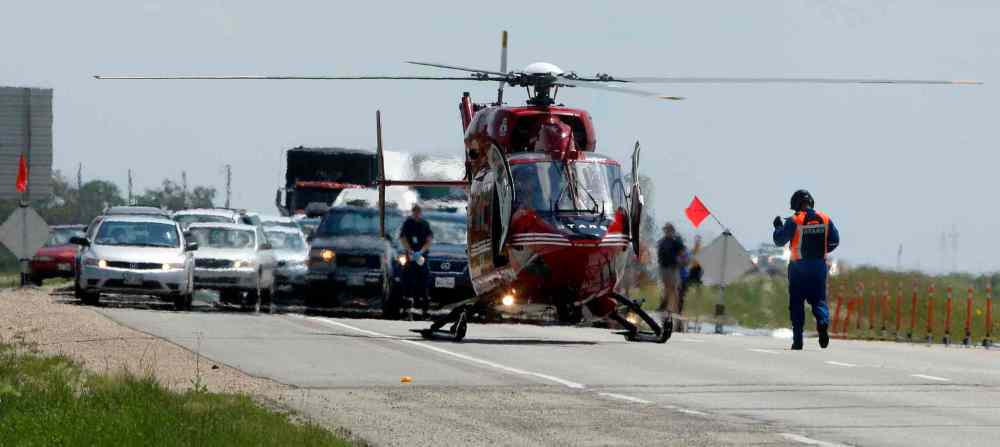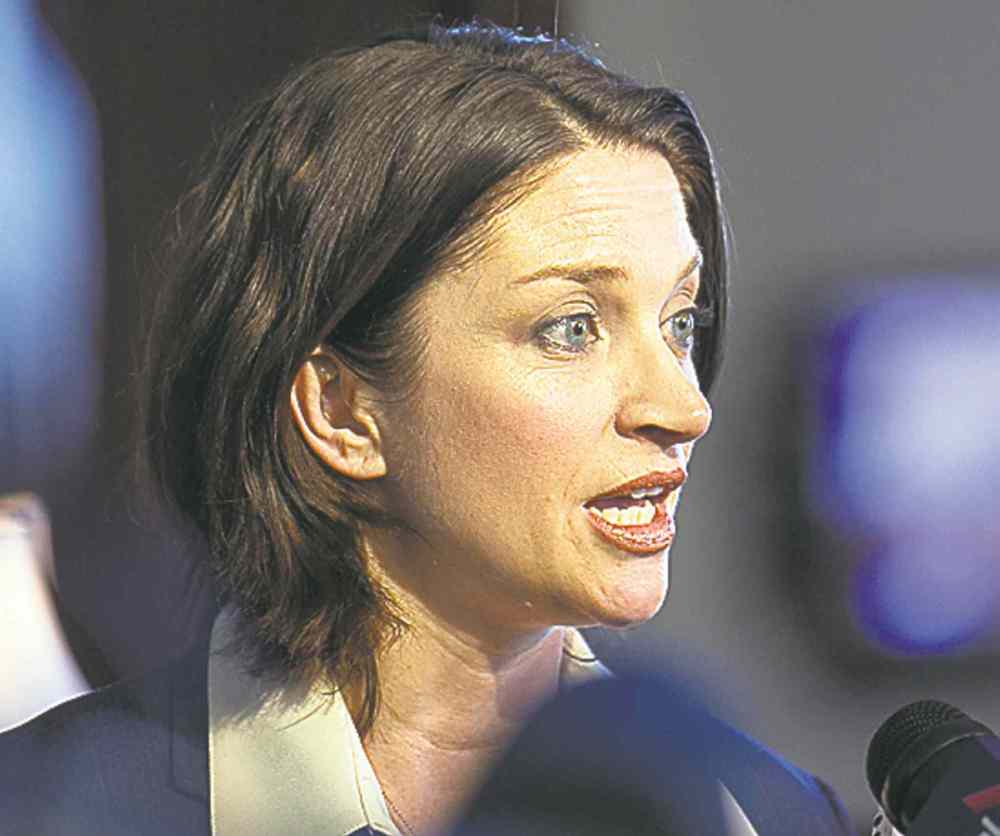STARS to fly in emergencies
But hospital transfers still off limits
Advertisement
Read this article for free:
or
Already have an account? Log in here »
To continue reading, please subscribe:
Monthly Digital Subscription
$0 for the first 4 weeks*
- Enjoy unlimited reading on winnipegfreepress.com
- Read the E-Edition, our digital replica newspaper
- Access News Break, our award-winning app
- Play interactive puzzles
*No charge for 4 weeks then price increases to the regular rate of $19.00 plus GST every four weeks. Offer available to new and qualified returning subscribers only. Cancel any time.
Monthly Digital Subscription
$4.75/week*
- Enjoy unlimited reading on winnipegfreepress.com
- Read the E-Edition, our digital replica newspaper
- Access News Break, our award-winning app
- Play interactive puzzles
*Billed as $19 plus GST every four weeks. Cancel any time.
To continue reading, please subscribe:
Add Free Press access to your Brandon Sun subscription for only an additional
$1 for the first 4 weeks*
*Your next subscription payment will increase by $1.00 and you will be charged $16.99 plus GST for four weeks. After four weeks, your payment will increase to $23.99 plus GST every four weeks.
Read unlimited articles for free today:
or
Already have an account? Log in here »
Hey there, time traveller!
This article was published 08/03/2014 (4287 days ago), so information in it may no longer be current.
The Shock Trauma Air Rescue Society (STARS) helicopter air ambulance can fly again, but only in emergency situations such as a serious car crash outside Winnipeg.
Its air-medical crews will not be dispatched to fly critical patients from hospital to hospital, called inter-agency transfers, until a newly formed panel of medical experts decides they have the proper skills.
The decision to let STARS fly again, announced Friday by Health Minister Erin Selby, comes more than three months after the service was suspended following the death of a woman after an inter-agency flight in late November.

The suspension was supposed to last weeks, and critics say its extension highlights how poorly the government has handled the STARS file. They also say it points to how slowly STARS has integrated into the province’s emergency medical system.
In the past year, STARS in Manitoba flew 171 missions before it was grounded. In the same period, STARS in Saskatchewan flew, with two helicopters, 821 missions.
Selby and STARS CEO Andrea Robinson said the resumption of emergency flights will bolster urgent care. It comes with increased training for air-medical staff, including working at busier STARS bases in Alberta and Saskatchewan.
“We will count on our medical experts to guide us to full service going back up eventually,” Selby said.
University of Manitoba dean of medicine Dr. Brian Postl will head the review panel.
The return of STARS emergency flights also comes after STARS and provincial health officials, working through intermediary provincial EMS medical director Dr. Adrian Robertson, agreed on the implementation of a report critical of the STARS operations in Manitoba.
The province ordered an external review of 16 cases involving STARS and contracted Dr. Stephen Wheeler of the B.C. Ambulance Service Air Ambulance Program to do it.
Wheeler submitted his initial report in December, but STARS officials balked, citing several inaccuracies. A redacted version of the report, removing patient information, was released Friday.
‘We will count on our medical experts to guide us to full service going back up eventually’
— Health Minister Erin Selby
Conservative health critic Myrna Driedger said the government’s handling of the STARS file indicates STARS is not entirely welcome in the province.
“We know there are internal issues that have left Manitobans with an emergency safety net that is not there,” Driedger said.
“I’m not sure it’s something that’s going on in STARS. I think it’s something going on with the department, such as relationship problems between some people within the Department of Health and STARS.”
STARS has also been the subject of three critical-incident reviews in the past year, the most recent involving the death of the woman late last year.
The first critical incident occurred in February 2013 and involved an adult, but no details were released.
As a result, the province placed six dispatch restrictions on STARS, including the type of patient the service could fly and the distance it could transport patients.
The second critical incident was last May, involving two-year-old Morgan Moar-Campbell, who was being flown to Winnipeg from Brandon on a STARS helicopter for tests following a seizure. The boy was in an induced coma and could not breathe on his own. When he landed in Winnipeg, it was discovered his breathing tube had become dislodged, depriving him of oxygen and severely damaging his brain. His case is the subject of a lawsuit.

In 2013, the Manitoba government awarded Alberta-based STARS a 10-year contract, worth about $10 million per year. The not-for-profit STARS is also funded through corporate, community and individual donations, including a lottery.
Robinson said fundraising continues in Manitoba despite STARS’ status. RBC has contributed $250,000 to STARS to help create a mobile education program.
Manitoba auditor general Carol Bellringer is expected to release a value-for-money audit into STARS later this month.
bruce.owen@freepress.mb.ca
History
Updated on Saturday, March 8, 2014 10:10 AM CST: Replaces photo


